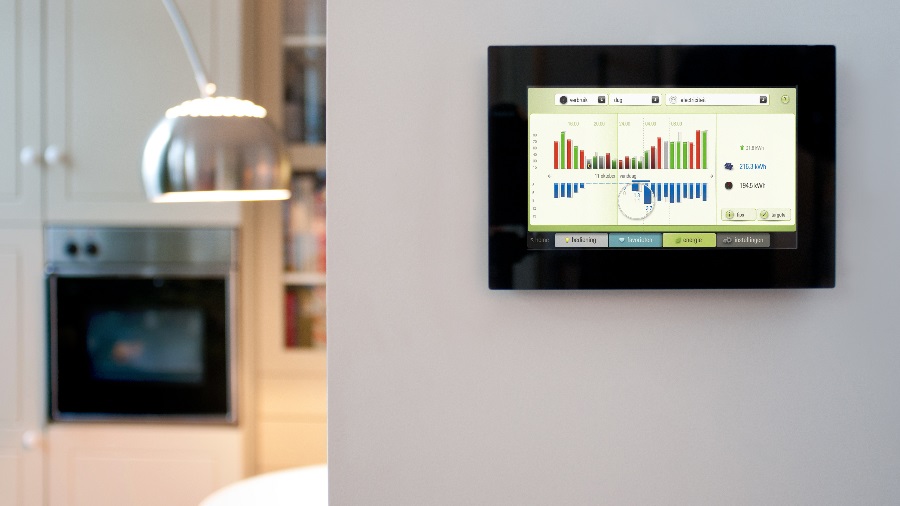A little less privacy is worth a little more security, says internet founder
Vint Cerf talks wine corks, Google Glass and Prism
Sign up for breaking news, reviews, opinion, top tech deals, and more.
You are now subscribed
Your newsletter sign-up was successful
"Ironically, here in the UK the reaction was more muted than in other parts of the world because you have experienced the utility of observation and CCTV cameras," adds Cerf, edging into controversy for perhaps the only time in the entire day.
"The value of that was shown - I thought - in the speed of capture of the people who bombed the tube in 2007.
"So here we are struggling to balance the safety of society against the privacy of the individual and we don't want to be at the extremes."
Google Glass - a powerful future
As the interview moved on to lighter topics, Cerf was happy to field a question about the privacy implications of a device coming from his now-employer - talking up the potential of Google Glass rather than focusing on the privacy implications of wearable tech.
"First of all we should say that the recording is not continuous because there's not that much memory in the device," he added.
"Ultimately having something very visible that shows the Google Glass is recording either in audio or video will probably be necessary - that's certainly what the feedback suggests.
"I find the idea of Google Glass very powerful in the following sense; What is happening is that the computer can see what you see and hear what you hear.
Sign up for breaking news, reviews, opinion, top tech deals, and more.
This makes the computer or software a partner in real time and in context so I can do things like point to something and say 'what's that' or point to a bottle of wine and say 'what are the tasting notes on that wine'.
"Because the computer is in the same environment it can see what I'm seeing."
Internet of Corks and Things
As he addressed the Campus Party crowd, Cerf's interest in the internet of things (devices on the internet providing data that allows us greater control and transparency of information) was clear.
After launching into an anecdote about the dystopian future of internet connected fridges, Cerf explained how he was using cheap connected chips to change his own household life.

"I happen to have this sensory network running at home - these little sensors run on two AA cells and they last for about a year - each one is about the size of a mobile and its monitoring temperature, humidity and light levels in the house every five minutes and that information is transmitted to a server down in the basement.
"Now these little sensors are also network nodes - and they are forming a mesh network on their own and they change their connectivity depending on what the network linkages look like so the information is sent through the network to the target.
"At the end of the year I have an accumulation of real data about how well the heating, ventilation and air conditioning has worked - this is proper engineering data and it means I can figure out how to adjust the systems.
"So before you open the bottle you would interrogate the cork and if that's the bottle that got up to 75 degrees that's the bottle you give to someone who doesn't know the difference."
Cerf, clearly something of an oenophile who references his wine several times throughout the day, has an even more important project that he is working on.
"It occurred to me that in the case of the wine cellar that this is a very important room in the house because there are a couple of thousand bottles of bottle in there. I need to keep it below 60 degrees fahrenheit so if temperature goes up over that because the system fails I get an sms on my mobile.
"I thought about this and realised that, seeing as I can also tell if the lights have gone off and on I might be able to figure out if someone has gone into the wine cellar while I was away. So my next project is to put RFID chips on each bottle and then have a sensor so I can take inventory instantaneously to see if any bottle have left the cellar without my permission.
"I was proudly explaining this to one of my engineering friends and he said, 'There's a bug,' so I said, 'What do you mean there's a bug?' and he replied: 'Well you could go in and drink the wine and leave the bottle.'
"That means I now have to put sensors in the cork and if you are going to do that you may as well sample the esters - which is what makes the wine taste the way it does.
"So before you open the bottle you would interrogate the cork and if that's the bottle that got up to 75 degrees that's the bottle you give to someone who doesn't know the difference."
Big data, big issues and big thoughts on the future, Cerf is showing no signs of easing down, and that is no bad thing for the rest of us.

Patrick Goss is the ex-Editor in Chief of TechRadar. Patrick was a passionate and experienced journalist, and he has been lucky enough to work on some of the finest online properties on the planet, building audiences everywhere and establishing himself at the forefront of digital content. After a long stint as the boss at TechRadar, Patrick has now moved on to a role with Apple, where he is the Managing Editor for the App Store in the UK.